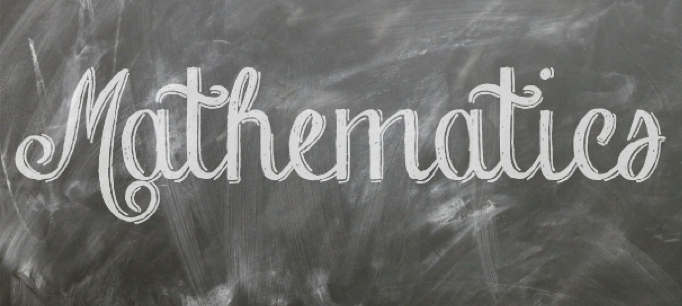
For Tutoring inquiry,
call +1 (365) 800-3775


Private Tutor
Our team of 14+ tutors, are each specialized in a subject area. We cover subjects including Grade 7-12 Math, Chemistry, Physics, Biology, and English.
Our tutors are knowledgable beyond the subject areas; helping students to identify their foundation gaps, explaining difficult concepts in simple terms, and guiding them through practice step by step.
Each session is divided into 2 parts. The first part is the lesson, where we proactively teach the student and review the key concepts for the week.
The second part is the practice together session. During this time, our tutor will work with the student and run through practice problems. This will allow us to point out any gaps in understanding in the student and strengthen their application abilities.
This is the benefit that our 1-on-1 tutoring can bring to the student. We will teach concepts and guide the student in their practical application, step-by-step.

| Problems | Our Strategies |
|---|---|
| Skill gaps from the past grades pulls the student severely behind |
Understand the students skill gap from the previous grades and fill them Start small, motivate the student. Allow the student to make initial success on their learning curve to build confidence |

| Problems | Our Strategies |
|---|---|
|
The student finds the new concept in the senior grade challenging This occurs very often in math - graphing, vectors, trigonometry, chemistry and physics |
Break down complex concepts into simple steps Organize knowledge for the student Provide extra practice and expose the student to a larger variety of problems |

| Problems | Our Strategies |
|---|---|
|
A G12 student will face severe competition for top universities Most G12 tests and exams are different from G11 - they approach university level difficulty, focusing on complex concepts and problem solving |
Practice tests: the student needs to be aware of what they do not know, and fill in the gaps Organizing categories of questions, for complex concepts and course materials We provide extra practice. Focus on problem solving Test and exam strategies: Time Management. Error Checking |
Math Tutor Mississauga and Oakville
Math is the most important subject throughout high school, besides English. Achieving a good math grade will open up opportunities for students to enter key university programs such as business, the sciences, and engineering. Nearly 85% of all university programs require good math grades to enter.
The major concern for math is that it is cumulative. Each math grade level is a building block to the next, and without a strong knowledge of previous math concepts, students will struggle. For example, math tests often check for understanding of previous math concepts in most steps of the questions asked.
At QEA, we focus on building the student’s math foundations for their long term success. Since QEA is an inspected school under the Ministry of Education, we have in-depth knowledge of the math curriculum and how each math building block leads to the next. Through easy-to-understand lessons and step-by-step explanations, most of our students progress well in math and develop a passion for it.

For Math Tutoring inquiry
call +1 (365) 800-3775
Common challenges that most students face in math:
Students should begin building their math foundational skills in Grade 7 or 8, starting with integers and fractions, and proceeding into graphing, algebra and more complex manipulations in high school. Without strong foundational skills, a student will struggle with math year by year, chapter by chapter. The key is to patch up math foundational gaps with lessons and lots of practice so that the student can strengthen his or her understanding.
This is a typical math challenge that most students face. Most students have difficulties translating word problems into equations and variables. The strategy is to have students understand different word problem scenarios within a chapter by having them associate the key elements to the variables and equations.
Once a student enters Grade 10 math, he or she will encounter complicated math concepts involving many parts. The challenge is to know when to use what equation!
One strategy that QEA uses is to show the “big picture,” rather than going into the technical details right away. Once the student understands the “big picture” - why each part exists and how they all relate to each other - he or she can then truly understand the math concept. Applying the equations will now be much easier.
Science Tutor Mississauga and Oakville
Science is an important subject throughout high school, especially for students who desires to pursue the science route in university and in their future career. There are boundless opportunities in science: medicine, dentistry, pharmacy, optometry, engineering and bio-research.
And yet many high school students face challenges in science. This discourages them from pursuing the exciting path of science, limiting their career choice in university.
Science is a combination of math, analytical skill, memorizing skills, understanding and applying concepts.

For Science Tutoring inquiry
call +1 (365) 800-3775
Students begin with their science courses in grade 9 and 10. Once they proceed into grade 11 chemistry, biology or physics, the foundational skill they learn in grade 9 and 10 become critical. For example in chemistry, if the student is not proficient in compound naming or balancing chemical equations, then they will run into difficulty throughout the course. Science is cumulative, therefore building a good foundation is the important first step towards success.
. Students are mostly accustomed to plugging in equations in math and deriving an answer. In science however, there are application questions, which are “situational” based questions. These science application questions, require the students to combine multiple concepts to derive the solution. In short, they have to first know what science “tools” to use.
In science, many students underestimate how important it is to gain an in depth understanding of science concepts. Memorizing science concepts may work for a time, but will not prove as helpful later on.
When a student encounter application question, where he or she is required to “apply” a concept into a different situation, memorizing simply won’t work. Students should seek to understand science concepts, rather than memorizing them. Understanding a science concept means knowing the “why” or “how” behind the fact, behind the equation or formula.
English is the most important subject in high school, since all university admissions require a good English grade. Achieving excellence in English in high school and in elementary school requires diverse skills like reading comprehension, which involves the ability to extract key information effectively, essay writing, which involves the ability to express the student’s thought effectively, and critical analysis, which involves being able to delve below the story to analyze characters, themes, and passages.
The QEA English tutoring program focuses on building 3 key skills: reading, writing, and critical analysis. We aim to develop these 3 skill sets with our English students by working through their English curriculum in school. In teaching English essay writing, for example, we teach our students how to develop essay introductions that can grab the attention of the audience, how to construct a concise and powerful thesis, and how to build arguments around the quotations from their Shakespeare plays or novels.

For English Tutoring inquiry
call +1 (365) 800-3775
Students nowadays are accustomed to writing short messages on their phones. The problem is that these messages have no proper grammatical structure, which becomes a habit and a reflection of their poor English writing. QEA first disciplines the students into using proper English structure and grammar, and then helps them to develop their writing skills in a step by step approach that involves brainstorming, outlining, and revising.
Often in high school English essays, students only state the plot of the story and neglect the in-depth analysis, which always leads to mark deduction. The student needs to go deep beyond the story; they need to tie their argument to a character or theme. This portion accounts for a large portion of marks as students progress into senior English courses.
Reading comprehension is a critical part of English. Through reading, students are expected to grasp the key information quickly. This is an important skill to develop in English. One key strategy is to ask a series of questions beforehand, such as: “What is the author trying to convey in this chapter?” When doing this, the student should have a plan in mind before reading, which will improve the effectiveness of their reading comprehension.















